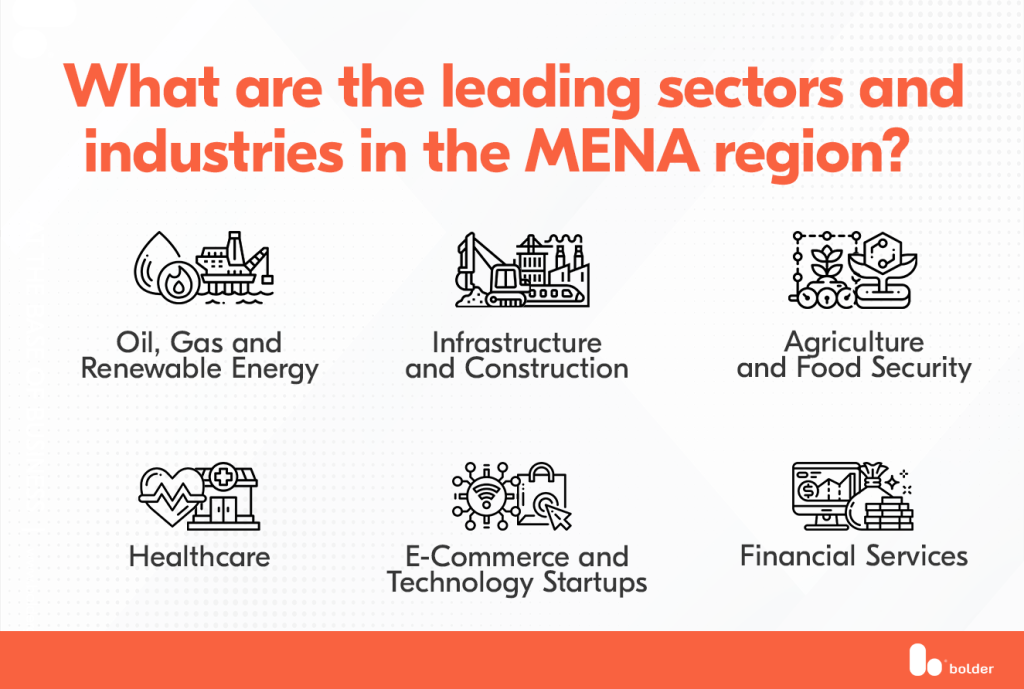Overview: Setting up a business in MENA
DISCLAIMER: This post was last modified on 24 October 2024. Some information in this article may not be updated.
According to a study by the World Bank, the Middle East and North Africa (MENA) Region’s total GDP growth is projected to increase to 2.2 per cent in real terms this year from 1.8 per cent in 2023. One factor driving this growth is the booming financial technology (FinTech) industry in the region. Compared to other industries, fintech accounted for 16 per cent of startup deals in the region in 2020.
With its fast-growing population, increased economic diversification and significant infrastructure development, doing business in the MENA region offers business opportunities and growth potential to investors, entrepreneurs and multinationals looking to set up a business here.
Setting up a business in the MENA region
Leading states
The same study above listed Dubai as the most attractive financial centre in the region as of October 2024. The state has a Global Financial Centres Index (GFCI) score of 724 points, highlighting its competitiveness in terms of business environment, taxation and infrastructure. Other leading players in the region include:
- Egypt
- Saudi Arabia
- Qatar
- Morocco
These countries are considered “prominent players” because they contribute to most of the MENA region’s economy due to their vast energy resources, such as oil, petroleum and natural gas reserves, which result in substantial petroleum and natural gas production.
Advantages of setting up a business in MENA
Due to the significant investments of governments in MENA in infrastructure, digitalisation and continuous economic diversification, the region is becoming more attractive to foreign investors.
Its geographic location and abundant resources, such as oil reserves, positions the region as a global financial hub.
Global companies can also benefit from the MENA region’s substantial infrastructure investment and business-friendly free zones that offer incentives including 100% foreign ownership, zero corporate tax and free capital movement.

Overview of challenges
Although setting up a business in the MENA region comes with opportunities, entrants may still encounter challenges when trying to penetrate the markets in the region.
The complexities of bureaucracy and regulations and understanding business cultural differences are some of the obstacles that might hinder market entry and operations.
Geopolitical instability may disrupt trade flows between states, posing political risks.
In addition, a shortage in the local workforce is another challenge new market entrants may face due to the rapid developments of digital technologies, increasing the need for digital skills and literacy. With the rise of the digital economy, the existing workforce in MENA must adapt their skills to the changing job market.
However, for foreign companies that are aware of the subtleties of local markets, the advantages greatly exceed the risks.
Government policies and incentives
MENA countries have varying business laws and policies. Still, the governments in the region actively support businesses by implementing investor incentive programs and streamlining licensing processes.
For example, the United Arab Emirates (UAE) offers 100% foreign ownership and a low corporate income tax rate.
Meanwhile, Egypt does not impose any restrictions or limitations on foreign investors’ ownership once they have received security clearances from the national security agencies.
Regulatory landscape
Setting up a business in the MENA region requires navigating the industry-specific challenges of legal and regulatory requirements. There are laws, rules and processes specific to each country in the region to take into consideration.
For instance, Saudi Arabia, UAE, Qatar and Morocco have all enacted new Companies Laws that introduce several regulations designed to assure compliance with their respective governments’ economic goals.
Qatar also amended its corporate governance guidelines for banks, mandating that they improve their organisational structures, governance procedures and articles of association.
Partnering with Bolder
Entering the MENA business scene can be challenging, but you can enter the region with ease if you partner with us through our extensive services in incorporation and corporate global expansion. Our team of experts can help you create a successful approach for this market.
Plus, with our partnership with Levari Law, we can provide a personalised and comprehensive suite of corporate, funds and legal services to asset managers, investors, corporations and private individuals across the globe, particularly in the MENA region.
Start growing your business in one of the most progressive regions in the world by contacting our MENA desk:
+31 20 802 5223
+31 20 802 5238
+31 20 708 5770
Bolder Group does not provide financial, tax or legal advice and the information contained herein is meant for general information purposes only. We strongly recommend that before acting on any of the information contained herein, readers should consult with their professional advisers. The Bolder Group accepts no liability for any errors or omissions in the information, or the consequences resulting from any action taken by a reader based on the information provided herein.
Bolder Group refers to the global network of independent subsidiaries of Bolder Group Holding BV. Bolder Group Holding BV provides no client services. Such services are provided solely by the independent companies within the Bolder Group which are each legally distinct and separate entities and have no authority (actual, apparent, implied or otherwise) to obligate or bind Bolder Group Holding BV in any manner whatsoever. The operations of the Bolder Group are conducted independently and have no affiliation with third party financial, tax or legal advisory firms or corporations.
